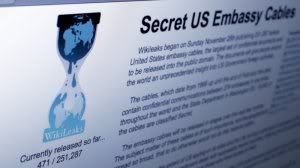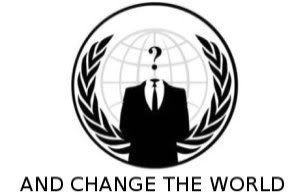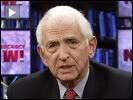
Despite newsroom layoffs in 2010 and economic forecasts that this may be a tough year for media companies, several top investigative journalists say 2011 could be a turning point for their craft. The group — which represents print, broadcast and online; national and local; profit and nonprofit organizations — predicts we may be entering a new era of investigative reporting. They expect to see:
* an increase in nonprofit investigative journalism organizations that partner with legacy newsrooms to produce meaningful work;
* investigative and enterprise reporting grow as a key distinguishing feature of newsrooms that prosper in 2011;
* a wider range of “investigative” work that can be delivered on many platforms, including mobile, social media and through micro-local Web networks;
* the hottest investigative stories of 2011 will be about federal spending;
* a need for all journalists to learn new skills in social media and database reporting;
* fallout from the WikiLeaks controversy that they say will make it harder to get information, including public records.
We asked top investigative journalists these questions:
* How have layoffs and buyouts affected investigative/enterprise work this year? Do we end 2010 any better or worse where investigative reporting is concerned?
* What are the big emerging trends that you see for investigative reporting in 2011 and beyond? What role will nonprofit investigative centers have?
* What worries you most about the future of investigative reporting?
* What are the essential skills that every journalist will need in 2011 to do investigative work?
* What are the topics that will produce the most important stories in 2011?
Below we highlight answers from these five journalists:
* Joe Bergantino, Director/Senior Investigative Reporter for
the New England Center for Investigative Reporting
* Alison Young, USA Today Investigative Reporter and
President of the Investigative Reporters and Editors Board of Directors
* David Raziq,
KHOU-TV (Houston) Executive Producer for Investigations. In the last decade his team has won every major broadcast journalism award, including duPonts, Peabodys and IRE medals.
* Polly Kreisman, Emmy award-winning reporter,
started a micro-local community website and now heads
InvestigateNY.org, a nonprofit center for investigative reporting that launches in January 2011.
* Cheryl Phillips, Data Enterprise Editor at The Seattle Times and Chairman, IRE Board of Directors; Pulitzer finalist and one of the editors involved in
breaking news coverage last year which received a Pulitzer Prize.
Here’s what they told us.
Layoffs take a toll, but investigative reporting thrives
Cheryl Phillips: 2010 was marked by a slowdown in the number of layoffs and buyouts and a bit more stabilization. What’s more, many longtime investigative journalists who had taken buyouts a year or so ago re-emerged at new journalism homes. Some moved to nonprofit shops. California Watch, for example, expanded. Other journalists married academia and the real-world by working with students to do strong investigative work. The key thing is that many folks with strong investigative and watchdog chops didn’t just go away. They recreated themselves but still kept that focus in investigative/watchdog journalism.
Joe Bergantino: The most promising news is that many of the investigative reporters who’ve left mainstream newsrooms have decided to start their own nonprofit investigative reporting centers to continue their work. The number of centers is growing rapidly nationwide. Those centers, in some cases, now offer readers, viewers and listeners more in-depth investigative stories than their local newspapers or TV stations.
Another major development this past year was the rapid expansion of The Center for Public Integrity (CPI). The Huffington Post’s investigative unit merged with CPI to form the largest nonprofit investigative reporting center in the country. CPI, along with ProPublica, which won a Pulitzer Prize in 2010, are producing a constant flow of top-notch investigative reports.
David Raziq: From the standpoint of my own company and station, not only have we not reduced our investigative reporting efforts, but we now have an additional group of newsroom reporters selected to focus on generally shorter-turn investigations. Those efforts — in conjunction with the Unit I have been a part of for the past 13 years (where we tend to focus on long-term, large scope investigations) — has definitely increased the enterprise/investigative output of our station.
Alison Young: Many legacy newsrooms, after staff reductions, are seeking to do more watchdog reporting in response to reader and viewer interest. They’re coming to groups like IRE to invest in staff training and when they’re making hiring decisions, they are often looking for reporters with watchdog and investigative skills. (USA TODAY, for example, just reorganized its newsroom and created a five-person investigative team, with four reporters and an editor.)
Trend: Nonprofit newsrooms will continue to grow
Joe Bergantino: Nonprofit investigative centers are now a major force. Some of the best investigative reporting in the country is flowing out of local centers, as well as the big national centers in Washington, New York and San Francisco.
Polly Kreisman: The idea is to have enough of these organizations working successfully around the country (about 40 so far are members of
the Investigative News Network) so traditional media will come to rely on this model and support it, even mainstreaming it.
Cheryl Phillips: Nonprofit sites and academic institutions will continue to try to fill the hole left by the decrease in investment in investigative journalism at many newspapers. And those organizations will partner with the newspapers to expand the reach and, therefore, the power of the work being produced.
For their part, the newspapers will engage in these collaborations for the same reason. I think most editors shrunk investigative staffs reluctantly. Good local investigations that help serve the public are the bread and butter of what we do. Plus, they get results and readership. Partnering just makes sense.
Joe Bergantino: Three things worry me most:
* Will nonprofit centers be able to come up with a sustainable business model that ensures their long-term survival or will they, one by one, shut down because of lack of funding?
* As more mainstream media outlets use investigative reporting as a way to boost readership and ratings, will the reporting be worth reading or watching?
* Will the WikiLeaks controversy result in a backlash that leads to less access to government documents?
Investigative reporting requires data, search, social media skills
Joe Bergantino: Investigative reporters in 2011 not only need to know all the basics, including how to crunch data, they also need to know how to tap into the crowd for information, funding and access to public and private sector documents. Imagine a Julian Assange in every state and major city in the US.
David Raziq: I think they are going to have to be multimedia journalists, and that also includes the various methods of making their audience aware of an upcoming story. And they’ll have to keep up with it too, be consistent at it, because the competition for readers/viewers is just getting fierce.
Cheryl Phillips: They should learn some basic data skills. They should learn some basic social media skills. They need to use Twitter — and not just to tweet their stories, but to follow what other people are doing and to watch for trends.
They need to know how to do more than just a basic Google search — how to search for specific types of documents, how to search scholarly databases and repositories of business information.
They need to understand how to use Facebook. They need to follow their area of expertise with social media.
They should check out Storify and GeoCommons and they should not be afraid to adopt new methods of collecting and sharing information. An example would be using DocumentCloud to parse through large PDFs and then make some of that information public.
Historically, investigative journalists have collected reams of information and then in writing their story, left much of that raw information in their desks and in their minds. They become the expert on the topic. They should still be the expert on that topic — but the investigative journalist of today also needs to share much more information, allowing the reader to explore the story in even more depth and drive that exploration themselves.
A recent collaboration The Seattle Times did with ProPublica involved
the collection and analysis of foreclosure data. Upon publication, that data — which otherwise might have sat dormant — was provided to anyone else who wanted it, which might help extend the story.
Alison Young: Journalists today have more tools than ever before to help them investigate important stories. The availability of data, electronic access to information and new technologies that allow for analysis, visualization and publication have created amazing opportunities for investigating and telling stories. …
Learning how to use spreadsheets is critical. It’s the foundation for doing so many kinds of investigative stories, whether you’re importing data or building your own data set. Twitter and other social networking tools can be helpful. But spreadsheets and databases are critical.
A great example is Daniel Gilbert’s Pulitzer-winning investigation of mineral rights royalties. It shows the power of data journalism, even if you’re just one reporter in a small newsroom.
Learning effective time management — how to manage and juggle daily responsibilities with long-term investigations — is also important for anyone wanting to carve out more time for in-depth reporting.
Polly Kreisman: Every reporter should know how to:
* set up a WordPress site;
* understand SEO;
* be able to mine the deep Web;
* edit video;
* embed digital photographs;
* know how to leverage the impact of information via social media;
* understand the limits of social media.
…all while continuing to hone excellent writing and reporting skills and constantly monitoring the changing landscape of media and emerging technologies and platforms.
Trends: More local, socially distributed investigations
David Raziq: …what I see are young, tech-friendly reporters doing more and more sophisticated investigations and information analyses with CAR. Add in our continually improving information technology and I think we could see some amazing stories.
Cheryl Phillips: I have a multi-part answer.
The continued marrying of data and investigative/in-depth journalism. Data is the underlying information beneath a story. Inside data on any topic are the stories of people and how their lives are changing, or how well the public is being served. The big shift will be the increasing use of this data in interactive ways that tell a story along with the traditional narrative.
I think there will continue to be more use of information collected from readers that will then be used tell broader-stroke stories. However, I think along with this trend, journalists will also have to continue to fight to obtain public data for use in investigative reporting.
There are troubling efforts to shut down public data. And in this era of cost-cutting, it is imperative that journalists don’t fall down in their responsibility to fight for access to information on behalf of the public.
Without public employee information, we might never have been able to report in Seattle on school coaches who preyed on student-athletes. Without fighting the improper sealing of court records, we would not have been able to report on flawed medical devices or a flawed court guardianship system. Keeping public records public is an imperative.
Mobile. More and more news will move onto a mobile platform and I think that investigative work will end up being split into different forms depending on the platform. Just as now news organizations tweet the news of their latest investigations with links to the full stories, a mobile platform may provide an opportunity for a synopsis of a project with links to other versions.
The difference is that some of this mobile platform will include more video and more visualization. I think data visualization will increasingly be built on platforms that will accommodate mobile.
A continued migration of investigative journalists to Web-only sites and the increasing use of social media by investigative journalists. For example, much more Twitter-investigative source work. Investigative journalists may truly discover how to mine the best of Twitter for source development and trends.
Quick-hit daily investigative work at a micro-local level. Think Patch. Think local bloggers. In Seattle, for example, we have a partnership with multiple local blog news sites and have worked with those sites already for many daily stories, as well as a project on homelessness in our community. The journalists at these local sites can develop strong sources and can be on the scene of a breaking news event quickly. A good number of these reporters have journalism experience already and those who don’t are seeking out training.
Government spending, environmental issues will be big stories in 2011
Joe Bergantino: We only have begun to scratch the surface of the $700 billion in stimulus spending over the past two years. Follow the money and dig; there’s much more to uncover. Same holds true for the budget-cutting process ahead on the national, state and local levels. It deserves close scrutiny.
Health care costs and cutbacks, Wall Street’s “creativity,” money and politics, and the ongoing domestic human toll of the wars in Iraq and Afghanistan are topic areas that every investigative reporter needs to explore.
David Raziq: think the failing infrastructure of the U.S. is something we just need to keep reporting on, and on a local basis there is just so much going on. And that also includes your public drinking water purification and delivery system, something my team has been reporting on for months now.
I think a real analysis needs to be done on the FDA because we have products coming into this country and also being made in this country that instead of regulating, the FDA is just allowing the American public to be guinea pigs for them, not catching problems until, as Richard Clarke said, “there are bodies on the ground.”
I also think the effect of the recent Supreme Court ruling on corporate political contributions will definitely need to be investigated.
Cheryl Phillips: Follow the money and the story will follow. I think good investigative stories can be found almost anywhere. I would suggest parsing just how government money is being spent — especially in this era of budget-cutting. Whose budget is not being cut and what loopholes are out there that ensure certain businesses or certain individuals continue to collect larger sums of money?
…Find out the action — get the story tip, then dig into it to see what’s there — through people and through data that represent them.
Al Tompkins
Via
poynter.org














